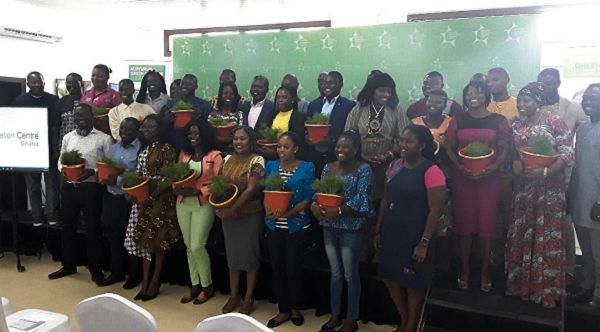
Entrepreneurs advised to resist fear to fail
The Founder of Koko King, Mr Albert Osei, has urged entrepreneurs in the country not to be afraid of failure.
He said an individual could not succeed in business while harbouring the fear of failure.
“It is the failure that will strengthen you to find creative means to provide solutions to problems.
In the last 10 years, we at Koko King have failed every year in one way or the other,” he stated.
Mr Osei was speaking at the induction and graduation ceremony of Ghana Climate Innovation Centre (GCIC).
“It takes a long time to success, so you must persevere and be patient because you will be frustrated with the system, family and financiers.
You have to maintain your sanity and be focused because there will be pressure from your family wanting to see results in a short term,” he noted.
He advised the graduates who took part in the GCIC’s Business Incubation Programme to come up with sustainable business ideas that could stand the test of time.
“As a business person, you must have a mind of steel and be crazy.
It will not come on a silver platter, you have to start, fail, start and fail before you will succeed,” he said.
Graduates
The graduates were ‘green’ entrepreneurs operating in domestic waste management, climate-smart agriculture and energy efficiency.
The group, which formed part of a cohort of three, are expected to champion green initiatives in their areas of specialisation and contribute to the country’s effort towards climate change adaptation and mitigation.
Over the 12 months mentorship period, the graduates received practical lessons in entrepreneurship, executive coaching with renowned persons and business leaders.
The occasion was used to induct cohort five of entrepreneurs who would receive the support to validate their business model, build management expertise, marketing skills and develop up-scaling strategies for their business.
Effects of climate change
The Executive Director of GCIC, Ms Rukayatu Sanusi, said the effects of climate change did not only present challenges but also offered many opportunities for entrepreneurs to harness.
She said the GCIC’s work was at the nexus of climate change, private enterprise and sustainable development.
“Our work is at the heart of business activity and a different premise of innovation. We proffer a different approach to commercial activity and a different premise in innovation.”
She said the circular economy was an emerging business strategy that enabled companies to innovate in ways that addressed resource scarcity and climate risk, in response to consumer and societal pressure to reduce waste and unlock that $4.5 trillion economic opportunity.